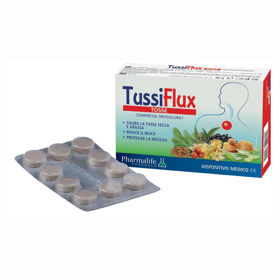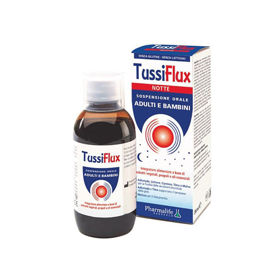Vprašanje stranke:
Ali je oslovski kašelj pri starejših osebah hudo nevaren? Vprašanje anonimne stranke
Odgovor farmacevta:
Oslovski kašelj pri starejših osebah lahko predstavlja resno tveganje za zaplete, vendar ni nujno hudo nevaren za vse starejše osebe. Stopnja nevarnosti oslovskega kašlja pri starejših je odvisna od več dejavnikov, vključno s starostjo, splošnim zdravstvenim stanjem, imunskim sistemom ter morebitnimi drugimi zdravstvenimi stanji.
Starejši odrasli, ki zbolijo za oslovskim kašljem, so lahko bolj dovzetni za resne zaplete zaradi že oslabljenega imunskega sistema in morebitnih drugih zdravstvenih težav. Možni zapleti ob oslovskemu kašlju pri starejših lahko vključujejo pljučnico, težave s srcem, izgubo zavesti, konvulzije, rupturo pljuč ali možganov ter težave s krvnim tlakom.
Poleg tega lahko oslovski kašelj predstavlja tudi tveganje za širjenje okužbe na druge, še posebej na bolj ogrožene skupine, kot so novorojenčki, dojenčki in ljudje s šibkim imunskim sistemom. Kljub temu pa oslovski kašelj pri vseh ne bo povzročil hujših zapletov. Nekateri starejši lahko okrevajo brez resnih posledic, še posebej, če so bili cepljeni ali imajo močan imunski sistem.
Ključnega pomena je, da starejši, ki kažejo simptome oslovskega kašlja ali so bili izpostavljeni okužbi, poiščejo zdravniško pomoč. Zdravnik lahko oceni resnost bolezni, svetuje glede zdravljenja ter spremlja morebitne zaplete. Poleg tega je preprečevanje ključnega pomena, zato se starejšim priporoča cepljenje proti oslovskemu kašlju in izogibanje stiku z ljudmi, ki kažejo simptome okužbe.
Kakšne zaplete lahko dobijo starejše osebe zaradi oslovskega kašlja?
Oslovski kašelj pri starejših osebah lahko povzroči različne zaplete, ki so lahko resni in v nekaterih primerih tudi življenjsko ogrožajoči. Nekateri zapleti, ki se lahko pojavijo pri starejših zaradi oslovskega kašlja, vključujejo:
- Pljučnica: ena najpogostejših zapletov ob oslovskem kašlju pri starejših je pljučnica. Okužba z bakterijo Bordetella pertussis lahko privede do sekundarne bakterijske pljučnice, ki je lahko resna in zahteva ustrezno zdravljenje.
- Izguba zavesti: intenziven paroksizmalni kašelj pri starejših lahko povzroči izgubo zavesti ali celo kratkotrajno nezavest.
- Težave s srcem: pri nekaterih starejših lahko oslovski kašelj povzroči težave s srcem, kot so aritmije ali srčno popuščanje, zlasti pri ljudeh s predhodno obstoječimi srčnimi težavami.
- Ruptura pljuč ali trebuha: intenziven kašelj lahko povzroči rupturo pljuč ali trebuha, kar je resen zaplet, ki zahteva nujno medicinsko obravnavo.
- Težave s krvnim tlakom: pri nekaterih starejših ljudeh lahko oslovski kašelj povzroči težave s krvnim tlakom, kot so hipertenzija ali hipotenzija.
- Zadušitev: intenziven kašelj lahko v redkih primerih povzroči zadušitev, zlasti pri starejših, ki imajo težave z dihanjem ali druge zdravstvene težave.
Ali se starejši odrasli lahko cepijo za oslovski kašelj kasneje v življenju?
Da, čeprav se cepivo proti oslovskemu kašlju običajno daje v otroštvu kot del rutinskega cepljenja, je možno in priporočljivo, da se tudi starejši odrasli cepijo, če niso bili cepljeni ali nimajo popolne imunosti. Pri starejših odraslih se običajno uporablja cepivo proti oslovskemu kašlju, ki vsebuje tudi komponento za zaščito pred davico in tetanusom, znano kot TDaP cepivo.
Starejšim odraslim, ki niso prejeli cepiva proti oslovskemu kašlju v otroštvu ali niso bili cepljeni v zadnjih desetletjih, se lahko priporoči cepljenje. Če oseba ne ve, ali je bila cepljena ali ne pozna svojega imunizacijskega statusa glede oslovskemu kašlju, se lahko prav tako priporoči cepljenje. Starejšim osebam, ki so v stiku z novorojenčki ali dojenčki, se lahko priporoči cepljenje, da bi zaščitili te bolj ogrožene skupine pred okužbo. Tudi zdravstveni delavci in drugi, ki so izpostavljeni tveganju za okužbo ali širjenje okužbe, se lahko cepijo proti oslovskemu kašlju.
Kako prepoznati oslovski kašelj pri starejših osebah?
Prepoznavanje oslovskega kašlja pri starejših osebah lahko predstavlja izziv, saj se simptomi lahko razlikujejo in so lahko manj specifični kot pri otrocih. Kljub temu pa obstajajo nekateri znaki in simptomi, na katere je treba biti pozoren pri prepoznavanju oslovskega kašlja pri starejših osebah:
- Paroksizmalni kašelj: eden od ključnih znakov oslovskega kašlja je paroksizmalni kašelj, ki je lahko intenziven, neprekinjen in se lahko pojavlja v napadih. Kašelj je lahko tako močan, da povzroči težave z dihanjem ali celo bruhanje.
- Splošno slabo počutje: starejši odrasli z oslovskim kašljem se lahko počutijo izčrpane, utrujene ali imajo splošne bolečine v telesu.
- Težave z dihanjem: intenziven kašelj lahko povzroči težave z dihanjem ali kratko sapo.
- Neželeni simptomi: poleg kašlja lahko starejši odrasli z oslovskim kašljem doživijo tudi druge simptome, kot so zamašen nos, izcedek iz nosu, kihanje, povišana telesna temperatura ali splošno slabo počutje.
- Bruhanje ali težave s hrano: intenziven kašelj lahko sproži bruhanje ali povzroči težave pri hranjenju.
Zanimivo branje: Oslovski kašelj pri odraslih
Zanimivo branje: Oslovski kašelj kako prepoznati






 Facebook
Facebook
 Instagram
Instagram
 info@moja-lekarna.com
info@moja-lekarna.com

